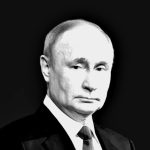imaginima/Getty Images
- Europe will continue using Russian oil despite the EU’s proposed embargo, a Russian politician told RIA.
- Vladimir Dzhabarov said the EU would by buy it via third countries at higher prices.
- On Wednesday the EU proposed a total ban on Russian oil imports.
European Union nations will continue buying Russian oil by sourcing it via third countries even if the trade bloc’s proposed embargo is adopted, a Russian politician has claimed.
Vladimir Dzhabarov, a Russian senator who sits on the country’s Federation Council and is a member of President Vladimir Putin’s United Russia party, told state-owned news outlet RIA Novosti on Wednesday that he expected the EU to buy Russian oil from other countries and pay higher prices as a result.
This would push up food and gas prices, he said.
On Wednesday, the EU proposed a total ban on Russian oil, with plans to phase out crude oil imports within six months and refined products imports by the end of the year.
“Let us be clear: it will not be easy,” European Commission President Ursula von der Leyen, said Wednesday. “Some member states are strongly dependent on Russian oil. But we simply have to work on it.”
Russia is the world’s third-biggest oil producer, accounting for about 12% of global production. It’s the EU’s largest supplier, providing around 24.8% of the trade bloc’s total oil imports in 2021. Norway, the second-biggest exporter to the EU, supplied 9.4%.
By gradually reducing reliance on Russian oil, EU member countries will have time to time to find alternative supplies and so “maximize pressure on Russia, while at the same time minimizing collateral damage to us and our partners around the globe,” von der Leyen said. Officials from the 27 member countries will meet later on Wednesday to discuss the proposals.
The West has imposed sweeping sanctions on Russian industries, companies, and elites after President Vladimir Putin ordered troops to invade Ukraine in late February.
The EU has been under pressure to cut its dependency on Russian energy supplies. Ukrainian President Volodymyr Zelenskyy previously told the BBC that European countries continuing to import oil and gas from Russia were making money “out of blood.”
Germany – Europe’s largest economy – said it has so far cut its dependency on Russian oil from 35% down to 8% by terminating supply relationships and not extending contracts.
On Sunday, Robert Habeck, Germany’s minister for economic affairs and climate action, said that cutting off Russian crude oil imports by the late summer was a “realistic prospect,” speeding up a forecast from late March when it said it expected to be “virtually independent” of Russian oil imports by the end of the year.
Insider has reached out for comment from the European Union on Dzhabarov’s comments.
Powered by WPeMatico






